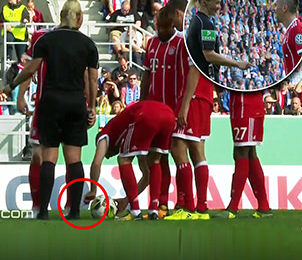Nigeria’s President Muhammadu Buhari has been off work for longer than he’s been in office this year.
The 74-year-old leader has been on sick leave in the U.K. since May 7. The Nigerian government has refused to disclose the nature of his illness, but it appears to be an ongoing problem: Buhari also took an extended period of medical leave in January, again in London, returning in March.
But the president’s wife, Aisha Buhari, remains staunch that her husband will soon return to work. And when he does, there’s going to be a clearout of “hyenas and jackals” in Nigerian politics by Buhari, she says.
The Nigerian first lady made the colorful comments on social media following a post by Shehu Sani, a Nigerian senator, who has expressed support for Buhari in the past.
Sani posted a cryptic statement on Facebook last week, urging Nigerians to pray for the “absent Lion King,” presumably a reference to the missing Nigerian president. Sani added that “the hyenas and the jackals are scheming” and they’re hopeful that “the Lion King never wakes or comes back so that they can be king.”
Buhari has delegated authority to Vice-President Yemi Osinbajo, but in the president’s absence, rumors of a possible coup by elements within the Nigerian military and claims by political opponents that Buhari is critically ill, or even dead, have failed to assuage Nigerians’ concerns.
Aisha Buhari picked up on Sani’s statement with her own post on Monday, suggesting that those who plotted against Buhari now would be crushed on his return, which she intimated would be “soon.”
Buhari’s wife has repeatedly insisted that her husband is recovering and will shortly be back in Nigeria. But after a visit to London in June, Aisha Buhari didn’t share any pictures of the president—which she did after an earlier visit.
The pair has been married for almost 30 years and has five children together. They had a public falling-out in 2016 after Aisha Buhari suggested in an interview that she may not support a bid by her husband for re-election at Nigeria’s next vote in 2019. The Nigerian president responded with controversial comments made while sharing a platform with German Chancellor Angela Merkel; Buhari said that his wife “belongs to my kitchen and my living room and the other room.”
There is no indication of when Buhari is likely to return to Nigeria, which continues to struggle with an economic downturn and multiple security threats, including the Boko Haram insurgency in the northeast.
Vice-President Osinbajo has taken a hands-on approach in Buhari’s absence, negotiating a peace settlement in the volatile but oil-rich Niger Delta and launching a humanitarian aid program for victims of Boko Haram.
His approach has led to calls by some for Buhari to resign and Osinbajo to assume the presidency, but such a succession could prove problematic in Nigeria, a country riven by ethnic and religious differences. Tradition dictates that the Nigerian presidency rotates every eight years (or two terms) between someone from the north—which is mostly Muslim and ethnically Hausa-Fulani—and a politician from the largely Christian south. Should Osinbajo take over, northerners may feel aggrieved: Buhari is only two years into his four-year term, and his predecessor Goodluck Jonathan —in power from 2010 to 2015—was a southerner









